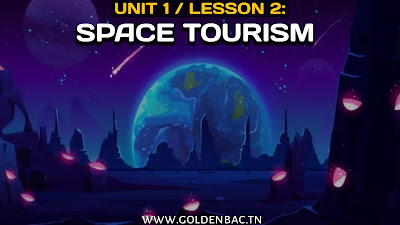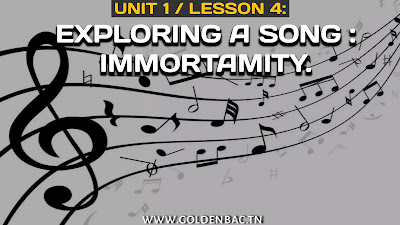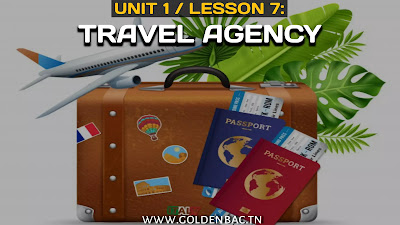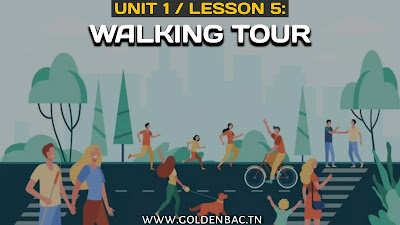UNIT 1: ARTS SHOWS AND HOLIDAYING
LESSON 1: HOLIDAYING
GRAMMAR:
Parallel structure:
(also called parallelism) is the repetition of a chosen grammatical form within a sentence. By making each compared item or idea in your sentence follow the same grammatical pattern, you create a parallel construction.
Example: - Ellen likes hiking, attending the rodeo, and taking afternoon naps.
OR - Ellen likes to hike, attend the rodeo, and take afternoon naps.
Using Parallel Structure:
a) With Coordinating Conjunctions:
When you connect two or more clauses or phrases with a coordinating conjunction (for, and, nor, but,or, yet, or so), use parallel structure.
Example: My best friend took me to a dance and a show.
b) With Correlative Conjunctions:
When you connect two clauses or phrases with a correlative conjunction (not only…but also,
either…or, neither…nor, if…then, etc.), use parallel structure.
Example: - My dog not only likes to play fetch, but he also likes to chase cars.
OR - My dog likes not only to play fetch, but also to chase cars.
c) With Phrases or Clauses of Comparison:
When you connect two clauses or phrases with a word of comparison, such as than or as, use parallel structure.
Example: I would rather pay for my education than receive financial aid.
Past habits:
When we talk about things that happened in the past but don’t happen anymore, we can do it in
different ways.
Used to:
We used to live in New York when I was a kid.
There didn’t use to be a petrol station there. When was it built?
We can use ‘used to’ to talk about past states.
I used to go swimming every Thursday when I was at school.
I used to smoke but I gave up a few years ago.
… or we can use ‘used to’ to talk about repeated past actions.
Would
Every Saturday I would go on a long bike ride.
My teachers would always say “Sit down and shut up!”
We can use ‘would’ to talk about repeated past actions.
Often either ‘would’ or ‘used to’ is possible. Both of these sentences are possible.
Every Saturday, I would go on a long bike ride.
Every Saturday I used to go on a long bike ride.
However, only ‘used to’ is possible when we talk about past states.
Linkers of contrast
- In spite of / Despite Link two contrasting ideas. Followed by a noun phrase.
Example: Despite his illness, he sat for the exam.
- Although / (Even) though Link two contrasting ideas. Followed by a clause.
Example: although he was ill, he sat for the exam
- However / Nevertheless / Still / Yet / Even so / On the contrary / In contrast. Introduce a new
Idea which marks a contrast with previously stated ideas. Introduced by a comma.
- On the one hand ... On the other hand. Links two contrasting ideas / paragraphs.
- In contrast to / Contrary to. Link two contrasting ideas. Followed by a noun phrase.
- Whereas Link two contrasting ideas. Not separated by commas.
Word derivation
Verb Adjective Noun
- Differ Different Difference.
- Enjoy Enjoyable Enjoyment.
- ∅ Important Importance.
- Vary Various Variety.
- ∅ Beautiful Beauty.
- ∅ Monotonous Monotony.
- ∅ Traditional Tradidtion.
- ∅ Original Origin.
- Sculpt Sculptural Sculpture.
LESSON 2: SPACE TOURISM
 |
| Space Tourism. |
GRAMMAR:
Prefixes
A prefix is placed at the beginning of a word to modify or change its meaning. Prefixes have different
meanings. These prefixes (in / un / dis / il / ir / im / ab / non) express the opposite.
Prefix Example
- In- Inaccurate
- Un- Uncertain
- Dis- Dishonest
- Il- Illogical
- Ir- Irregular
- Im- Impatient
- Ab- Abnormal
- Non- Non-living
STOP DOING VS. STOP TO DO
- We use the -ing form after stop to indicate that an action or event is no longer continuing:
E.g.: It’s stopped raining. Let’s go for a walk. (It was raining, but not anymore.).
We’ve stopped using plastic bags in supermarkets. We take our own bag with us now
when we go shopping.
- We use the to-infinitive after stop to indicate that someone stops doing something in order to do something else:
E.g.: On the way to Edinburgh, we stopped to look at an old castle. (We were travelling, then we
stopped our journey in order to look at the castle.)We stopped to have something to eat.
VOCABULARY:
- - Billionaire: a person possessing assets worth at least a billion dollars.
- - A couple of: two (things) or a few (things).
- - Face-off: a direct confrontation between two people or groups.
- - Foothold: a place where a person's foot can be lodged to support them securely, especially while climbing.
- - Well-to-do: wealthy; prosperous.
- - A deal: an agreement entered into by two or more parties for their mutual benefit.
- - Emerging: becoming apparent.
- - Spaceport: a base from which spacecraft are launched.
- - Exorbitant: unreasonably high.
- - Remote = distant.
- - Space tourism is the term that has come to be used to mean people buying tickets to travel to space.
LESSON 4: EXPLORING A SONG: IMMORTAMITY
 |
| IMMORTAMITY |
GRAMMAR:
Can is a modal verb.
- Can is used to express ability or to say that something is possible.
Example: I can speak Spanish. (= it is possible for me to speak Spanish = I have the ability to speak Spanish)
- Can is used to express permission:
Example: You can use my pen.
Negative
To form the negative we add "not" after can to form one word: cannot.
We can also contract the negative to form can't. (can't = cannot).
- I cannot play the piano. We can't go to the cinema tonight.
- She cannot speak French very well. He can't drive a car.
MUST
- To express obligation or duty.Example: I must memorize all of these rules about modal verbs.
- To emphasize the necessity of something.Example: You must give up smoking, it's bad for you.
- Deduction - Sure that something is true (Certainty).
- We use this when we don't know but we are certain that it is true (based on evidence), example: Look at all of that snow. It must be really cold outside..
- Expresses positive logical assumptions (Must + have + past participle) , example: She must have been at home - her car was there.
- A strong recommendation , example: The ice cream here is delicious. You must try some.
Mustn't
The negative is Mustn't which refers to prohibition (negative obligation).
Example: You mustn't use your smartphone while you are driving.
Must vs. Have to
Must can be replaced by Have to with little difference in meaning:
Example: You have to study. (= you must study).
Have to is a more informal while Must is mostly used in written orders or instructions.
Also, Must expresses obligation imposed by the speaker while Have to expresses external obligation.
- Teacher: You must complete this essay by Friday
- Student: We have to complete this essay by Friday.
The past tense of Must is Had to:
Example: I had to pay my speeding ticket yesterday.Mustn't vs. Don't have to
Be careful with the negative of Must and Have to where they DO have a different meaning. Mustn't is a negative obligation (= it is important that you do NOT do something) while Don't have to is an absence of obligation.
Mustn't = it is prohibited; it is not allowed.
Don't have to = no obligation; you are not required to do something, especially if you don't want to.
- You must not drink that. (= it is forbidden to drink that; it is not allowed).
- You don't have to drink that. (= you don't need to drink that but you can if you want).
- You mustn't tell John (= Do not tell John).
- You don't have to tell John (= you can tell John if you want to but it is not necessary).
VOCABULARY:
- Faith:
- Complete trust or confidence in someone or something.
- Strong belief in the doctrines of a religion.
- Immortality: the ability to live forever; eternal life.
- Memory:
- The faculty by which the mind stores and remembers information.
- Something remembered from the past.
- Sorrow: deep sadness.
- Soul: the spiritual part of a person.
- Convene = gather.
- Renown = fame.
LESSON 5: WALKING TOUR
GRAMMAR:
There are two types of adjectives:- Short adjectives:
- Definition : One-syllable adjective. / Example : Fast / nice.
- Definition : Two-syllable adjectives ending in “Y”. / Example : Happy / easy.
- Long adjectives:
- Definition : Two-syllable adjectives not ending in “Y”. / Example : Modern / pleasant.
- Definition : Three-syllable adjectives. / Example : Expensive / difficult.
Comparative form:
Comparative adjectives are used to compare differences between two objects or two people.
Superlative form:
Superlative adjectives are used to describe a person or an object that is at the upper or lower limit of a quality.
Short adjective Long adjective:
Comparative form Short adjective + er + than More + long adjective + than.
Superlative form The + short adjective + est The + most + long adjective.
Spelling of comparatives and superlatives with one-syllable adjectives:
Type of adjective Comparative Superlative
Adjectives ending in-e Add-r: e.g: finer, nicer add -st:e.g.: finest, nicest
Adjectives with one double the final consonant and add -er: double the final consonant vowel + one consonant: e.g.: bigger, hotter. and add -est: e.g.: biggest,
Two-syllable adjectives Change “y” into “i” and add -er: Change “y” into “i” and
ending in -y e.g.: happier, easier add -est: e.g.: happiest,
Irregular comparatives and superlatives:
Adjective Comparative Superlative
Good Better best
Bad Worse Worst
Far Farther / further Farthest / furthest
Little Less least
Late Latter last
Much More Most
Old Older elder Oldest eldest
VOCABULARY:
Border: the edge or boundary of something.Constituent: a component part of something.
Cosmopolitan: including or containing people from many different countries.
Venue: the place where something happens.
Year-round: throughout the year.
Residence: the place where someone lives.
Spectacular = amazing.
LESSON 6: PACKAGE TOUR
VOCABULARY:
- Package tour: a holiday organized by a travel agent, with arrangements for transport, accommodation, etc., made at an inclusive price.
- Independent tour: a tour in which you organize things yourself.
- A statement acknowledging the truth of something.
- The process or fact of entering or being allowed to enter a place.
- Check in: arrive and register at a hotel or airport.
- Check out: settle one's hotel bill before leaving.
- Contest (noun): an event in which people compete for supremacy in a sport, activity.
- Engage in competition to attain (a position of power).
- Oppose (an action, decision, or theory) as mistaken or wrong.
- Discount (verb / noun): a deduction from the usual cost of something.
- Exhibition (noun): a public display of works of art or items of interest, held in an art gallery or museum or at a trade fair.
- Exhibit (verb).
LESSON 7: AT THE TRAVEL AGENCY
 |
| Travel Agency. |
VOCABULARY:
- To book: to reserve.
- Booking (noun) = reservation.
- Deposit (noun): a sum of money placed or kept in a bank account, usually to gain interest.
- Deposit (verb): put or set down (something or someone) in a specific place, typically
unceremoniously.
- Discount (verb/noun): a deduction from the usual cost of something.
- Disappoint (verb): fail to fulfill the hopes or expectations.
- Oil refinery: an industrial installation where crude oil is refined to produce fuels including petrol, paraffin, and diesel oil.
- Refund (verb/noun): pay back (money), typically to a customer who is not satisfied with goods or services bought
- Schedule (verb/noun): a plan for carrying out a process or procedure.
- Superb = excellent.
LESSON 8: PUT A LITTLE DRAMA IN YOUR TRAVEL
VOCABULRY:
- Cyber trip: travel through cyberspace.
- Head (verb): move in a specified direction.
LESSON 9: THE WINTER’S TALE
VOCABULRY:
- Beg: ask (someone) earnestly or humbly for something.
- Evil: profoundly immoral and wicked.
- Shame: a painful feeling of humiliation or distress caused by the consciousness of wrong or foolish behavior.
- Unfaithfulness = betrayal = treason = treachery = infidelity = disloyalty.
You can take a look at our offers:




